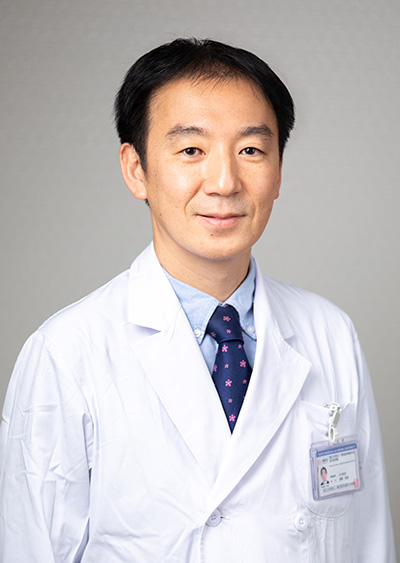Message from the Chair of the Department
Cultivating Human Resources for Mental Health Care and Psychiatry in the New Era

Since February 2019, I have been a Professor in the Department of Psychiatry and Behavioral Sciences, Graduate School of Medical and Dental Sciences at Tokyo Medical and Dental University (TMDU). Even with the COVID-19 pandemic and other challenges encountered during this time, I am confident that my colleagues have demonstrated their capabilities in their respective positions and overcome them, while also achieving new growth and producing evidence related to the pandemic. Five years ago, I wrote that education is the most important of the three pillars of the university’s mission: education, practice, and research. The COVID-19 pandemic severely limited the number of opportunities that were available for students and junior doctors to learn and improve. However, I believe that a high-quality education has been ensured through mutual efforts between teachers and students. As an indication of that, a number of young doctors newly joined us and received their certification as medical specialists and Designated Physicians of Mental Health. It is reassuring to know that they have grown and improved their skills even in a restricted environment, and that they are now teaching younger generations.
The medical specialist system changes almost every year, and both residents and supervising doctors must respond accordingly. The Department of Psychiatry at TMDU, taking advantage of its location in the middle of Tokyo, plays a coordinating role and provides a specialist program, which has a number of related facilities that adjust to individual interests and alumni association members who are passionate and accomplished. The program offers participants the opportunity to work in both urban and local hospitals and acquire knowledge from various backgrounds, such as acute care to rehabilitation and pediatric to elderly care. Despite changes in the medical specialist system, we have been able to respond flexibly with the help of this program. I am convinced that participants have advanced through this program to become leaders in high-quality mental health care who are trusted by patients and other medical professionals.
After becoming a specialist or designated doctor and learning general psychiatry skills, I encourage them to enhance their subspecialties and strive for a higher level as a specialist. Attendance at a graduate school is one option for achieving this goal. I myself have gained valuable experience at two university hospitals, a hospital in a depopulated area, an urban hospital, a research institute, and studying abroad. This is the moment to broaden your horizons and develop your network. Thus, we aim to offer a wide range of working styles and career paths.
Our Department of Psychiatry has traditionally focused on understanding the pathology of schizophrenia and developing new treatments, which are considered the core themes of psychiatry. My research has focused on schizophrenia and addiction as diseases, using brain imaging as an approach. On this topic, mid-level doctors have been successful in publishing impactful papers and receiving large-scale research funding. Moreover, research activities are being developed autonomously in each field due to the diversity of the target diseases and research approaches. Our department is also unique in having graduate courses that specialize in forensic and liaison psychiatry. In addition, as our research becomes more diverse and advanced, we are conducting studies on computational psychiatry and psychiatry within the context of big data and AI. A joint research course in cyber psychiatry with a telecommunication company has been established. In October of this year, we will merge with the Tokyo Institute of Technology and be rebranded as the Department of Psychiatry at the Institute of Science Tokyo. In my view, this will significantly stimulate research activities that have already been conducted. Our goal is to advance from translational research to clinical research that is directly linked to daily clinical judgments.
To advance the Department of Psychiatry of TMDU, which is a flexible and diverse group of psychiatrists who respond to diverse needs, we need fresh energy from all of you with various personalities and characteristics. I believe that the vitality of your work will enhance the happiness of those involved.
Finally, in the past five years, the base has expanded, and the bottom has been raised, but it is still in progress. Receiving both strict and warm guidance from our alumni and related doctors at TMDU is now more crucial than ever. Your continued support is greatly appreciated.
Hidehiko Takahashi
January 5, 2024
